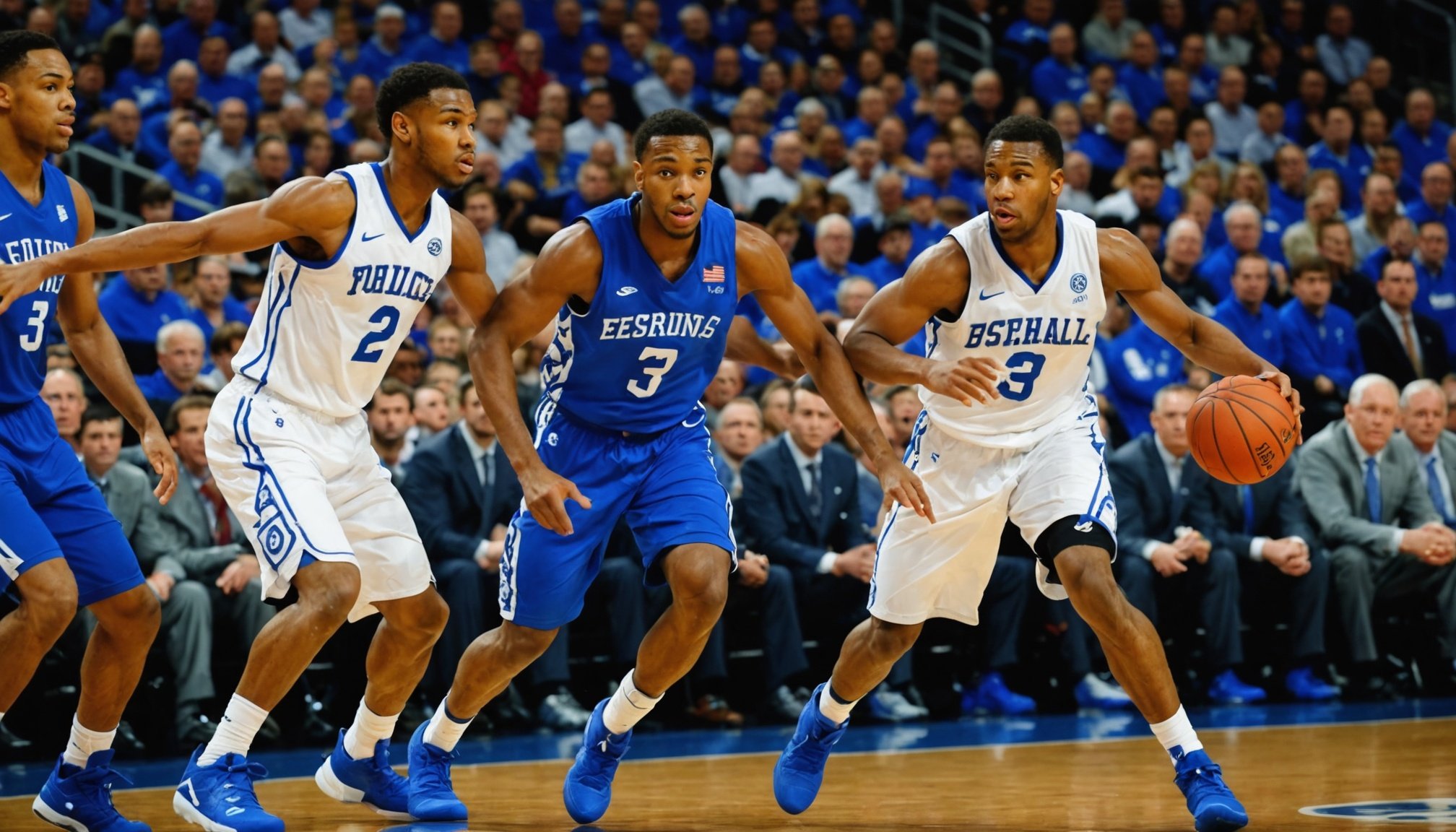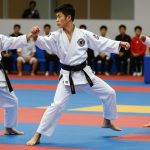Understanding Mental Toughness
Mental toughness can be defined as a psychological edge that empowers individuals to consistently perform at their upper range of talent and skill, particularly under pressure. This psychological proficiency plays a pivotal role in sports, acting as a critical differentiator in high-stakes situations.
In basketball, mental toughness manifests as resilience, perseverance, and unwavering focus amidst the game’s highs and lows. Mentally tough athletes excel not just because of their physical prowess, but also due to their ability to maintain composure and clarity during crucial moments. They overcome adversity by remaining adaptable yet determined, key attributes that set them apart from their peers.
Additional reading : Top Agility Drills Every UK Basketball Forward Should Master for Peak Performance
The importance of mental toughness in basketball cannot be overstated. Players often face intense physical and psychological challenges, from the pressure of last-minute game-winning shots to sustaining performance throughout an arduous season. Here, mental toughness becomes crucial, propelling athletes to push past fatigue, maintain peak performance, and effectively manage stress.
Basketball players with developed mental toughness often exhibit consistent self-discipline, emotional regulation, and an innate ability for strategic thinking under pressure. This not only enhances individual performance but fosters team cohesion and overall success. Hence, cultivating mental toughness is integral for aspiring athletes aiming to achieve excellence in basketball and beyond.
Also read : Ultimate Recovery Tactics for UK Basketball Players Post Double-Header Games
Pressure Situations in Basketball
Inches from the buzzer, UK basketball players often find themselves engulfed in high-pressure situations. These moments can include clutch free throws, pivotal game-winning shots, or critical defensive stops. When faced with such game scenarios, players must navigate the fine line between success and disappointment.
The psychological impacts of these high-pressure situations are substantial. Stress can either fuel performance or lead to a debilitating freeze. The key lies in how players manage the stress that accompanies intense game situations. The amygdala, the brain’s alarm center, can kick in, boosting adrenaline levels and potentially impairing clear decision-making. Recognizing these physiological responses is crucial for players.
Fortunately, there are effective strategies for recognizing and coping with pressure. Visualization plays a significant role, enabling players to mentally rehearse their actions before facing a real-life scenario. Breathing techniques and mindfulness are also practical tools that can help in managing stress levels and maintaining focus. Moreover, coaching methods focusing on building mental resilience are essential, empowering players to remain calmer in the face of adversity.
Understanding and implementing these strategies can mean the difference between maintaining control and succumbing to pressure—creating a sturdy mental fortress in even the most nerve-racking game scenarios.
Mental Conditioning Exercises
Incorporating mental conditioning into an athlete’s routine can significantly enhance performance. Training techniques that focus on mental aspects often yield unexpected advantages when combined with physical skills.
Visualization Techniques
Visualization is a cornerstone of mental training, offering athletes a mental “rehearsal” that boosts confidence and clarity. To effectively visualise, the process begins with a quiet and distraction-free environment. Closing one’s eyes, imagining every detail of a successful performance helps embed the scenario into the mind. Many elite athletes, like Michael Phelps, have leveraged visualization. These techniques enable athletes to foresee and mentally prepare for diverse competition outcomes, amplifying their readiness.
Mindfulness and Focus Training
Mindfulness sharpens focus, crucial during high-stakes games. Techniques such as deep breathing and meditation enhance an athlete’s ability to remain present and perform under pressure. Activities like yoga or tai chi further fortify this mental discipline. Incorporating a brief mindfulness session before competitions can keep distractions at bay and ensure peak focus is maintained throughout.
Goal Setting for Mental Resilience
Setting achievable goals cultivates mental resilience. Dividing these into short-term and long-term strategies can streamline progress. Monitoring these goals regularly helps athletes adapt to changes, ensuring they remain on track. By integrating this methodical approach, athletes are better positioned to overcome hurdles and sustain motivation during training and competitions.
Coping Mechanisms for Stress
Navigating stress is crucial in maintaining athletic performance and overall well-being. To effectively employ stress management techniques, identifying personal stressors is paramount. These stressors can stem from both external pressures, such as competition and expectations, and internal factors, like self-doubt. Understanding your unique triggers can pave the way for tailored coping mechanisms.
Building resilience is a productive approach to managing stress. Resilience can be developed through various strategies, including mindfulness practices, setting realistic goals, and maintaining a positive outlook. Techniques such as these have been shown to improve an individual’s ability to recover from setbacks and maintain focus during challenging times. Prioritising rest and recovery is also vital in building both physical and psychological resilience.
Moreover, the role of support systems should not be underestimated. Whether it’s a trusted coach, a supportive team, or a mentor, having reliable people to count on can significantly alleviate stress. Support systems offer the dual benefits of emotional support and practical guidance, helping athletes to manage stress more effectively. Mentorship can also play a vital role by providing insights and strategies from experienced individuals who have faced similar challenges, thereby enhancing the athlete’s coping mechanisms.
Personal Anecdotes and Athlete Insights
Reflecting on athlete experiences, personal stories, and expert insights offers a vivid picture of the sports world.
Stories from UK Basketball Players
Basketball players in the UK have inspiring personal stories reflecting their journey and resilience. One athlete recounted their experience of overcoming intense pressure during a championship game. As the clock ticked down, a missed shot could have meant defeat. However, the athlete embraced the moment, focusing on each play, ultimately leading their team to victory. Such experiences highlight the invaluable lessons learned from challenging game situations, emphasizing perseverance and the power of focus.
Inspirational quotes often encapsulate the essence of these experiences. A notable UK basketball player once stated, “In the heat of the game, pressure transforms into opportunity.” These words serve as a reminder that every obstacle paves the way for personal growth.
Expert Opinions on Mental Toughness
Sports psychologists and coaches offer profound expert insights on mental toughness, crucial for athletes. Interviews reveal that mastering the mind is as important as physical training. Key takeaways include utilising mindfulness and visualisation techniques to boost performance. Coaches advocate for routine mental exercises, helping athletes build resilience and confidence.
By implementing these expert strategies, athletes can hone their mental toughness, leading to improved performance. The combination of personal stories and expert advice provides athletes with a robust framework to navigate the psychological challenges of competitive sports.
Practical Applications in Training
Training techniques can significantly impact an athlete’s performance, especially when incorporating elements like mental toughness. This quality is crucial during practice drills as it empowers players to perform under pressure and adapt to dynamic situations. By simulating high-pressure scenarios, athletes learn to remain composed and execute skills effectively, even when challenged.
Incorporating Mental Toughness in Drills
Integrating mental toughness into practice drills fortifies an athlete’s resilience. Specific drills, such as situational scrimmages where outcomes are uncertain, mimic real-game tension. These drills should be followed by thorough reviewing and reflecting sessions, allowing players to identify strengths and areas for improvement. This post-drill analysis fosters self-awareness and enhances mental preparedness.
Routine Development for Players
Consistency in training routines is essential for developing a solid practice regimen focused on mental toughness. Regular training helps instil discipline and technical skills, making players adept at handling various in-game situations. Crafting a mental toughness regimen involves creating specific exercises aimed at strengthening focus and resilience. Adapting routines based on performance results ensures continual progress, addressing challenges, and refining strategies in response to observed weaknesses. Such tailored approaches significantly elevate players’ training experiences, preparing them for competitive environments.











